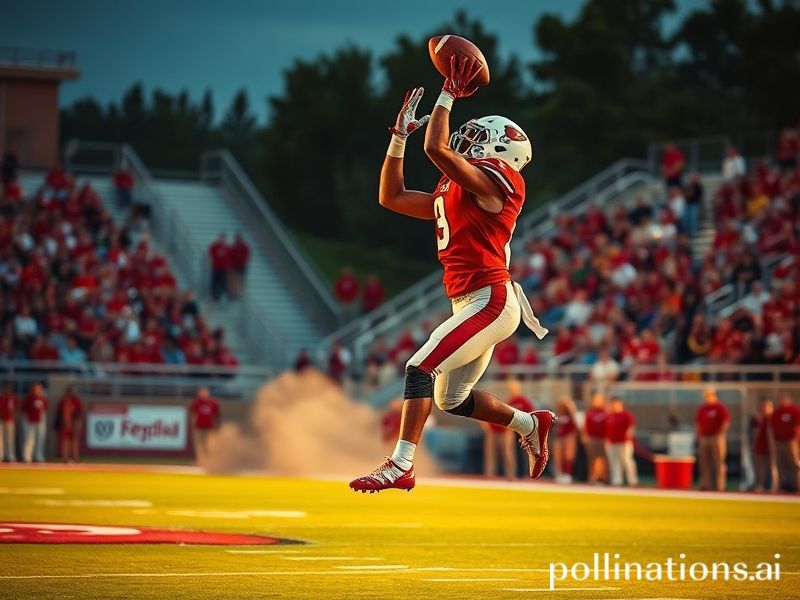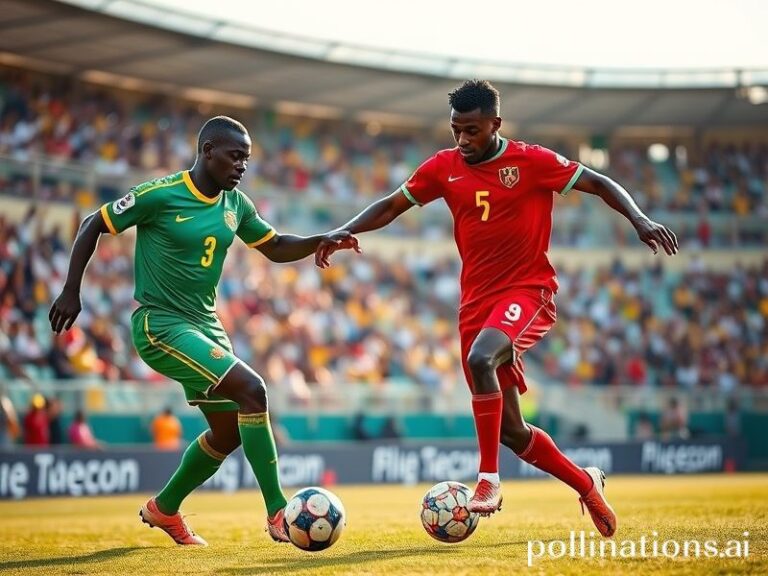Ball State vs. The World: How a Small-Town Football Team Became Collateral Damage in the Global Content Wars
MUNCIE, Indiana—Somewhere between the soy fields and the haunted Arby’s off I-69, Ball State University is once again asking the eternal question: can a mid-major football program survive the twenty-first century without either becoming a farm team for the Southeastern Conference or selling its soul to a streaming service whose Terms of Service were drafted in a panic at 2 a.m. in a Palo Alto WeWork?
To the outside world—by which I mean anyone whose passport has more stamps than a Kroger loyalty card—Ball State Football registers somewhere below competitive cheese-rolling and just above the Kyrgyzstan national cricket team. Yet the Cardinals’ 2024 campaign offers a tidy microcosm of how the global sports-industrial complex chews up the provincial and spits out content. The roster features a Canadian punter who grew up idolizing the CFL because “three downs felt more honest,” a Samoan defensive tackle who lists his hometown as “Apia, but emotionally Detroit,” and a walk-on slot receiver whose NIL deal with a regional vape distributor is literally denominated in Bitcoin. If you squint, it looks like the United Nations with worse catering.
Ball State’s schedule itself reads like a dark satire of American empire. There’s a “neutral-site” game in Dublin—because nothing says cultural sensitivity like staging American tackle football atop the mass graves of famine victims—followed by a paycheck beatdown at Clemson, the athletic equivalent of a developing nation accepting an IMF loan. The Cardinals will collect $1.7 million for that privilege, money that will underwrite the university’s new data-analytics minor, which, irony of ironies, trains students to quantify exactly how hopeless such games are.
The geopolitical kicker? All of this is simulcast on ESPN+, whose global subscriber base uses the matchup as background noise during Singaporean conference calls. A grainy feed of Ball State’s third-string tight end whiffing on a block in Death Valley becomes, for a bemused viewer in Lagos, the ambient wallpaper of late-stage capitalism. Somewhere a Parisian insomniac idly wonders why the marching band is playing a ska version of “Old MacDonald” and decides colonialism wasn’t all bad.
Back in Muncie, locals cling to the quaint notion that a Mid-American Conference championship might still matter. The town’s last great export was David Letterman, who left and never looked back except to crack jokes about how the water smells like burnt pennies. Yet hope springs eternal: local breweries now churn out a citrus IPA named “Fourth-and-Long,” and the Walmart has installed a “Cardinals Corner” where imported Bangladeshi T-shirts proclaim “We Fly Together” in Comic Sans. Global supply chains, meet regional denial.
One can’t help but admire the stubborn optimism. While European clubs pivot to crypto fan tokens and Chinese conglomerates buy Greek basketball teams for reasons known only to their accountants, Ball State soldiers on with a budget smaller than the annual coffee allowance for Manchester City’s analytics department. Their head coach, a man who still uses a flip phone because “touchscreens feel like witchcraft,” preaches “1-0 every week,” which is either a mantra of incremental progress or a confession that long-term planning is pointless in a world where the playoff cartel changes its bylaws more often than TikTok trends.
And so, under the glow of LED lights that replaced the old sodium bulbs—an upgrade financed, naturally, by a naming-rights deal with a company headquartered in Luxembourg for tax purposes—the Cardinals take the field. For two and a half hours they are gladiators, brand ambassadors, unwilling data points in a Nielsen spreadsheet that will be skimmed by a hedge-fund algorithm before you’ve finished your gyro. Win or lose, the highlight reels will be clipped into vertical videos, captioned in Indonesian, and monetized by a teenager in Estonia who has never heard of Indiana but knows precisely which facial expression triggers the algorithmic payout.
In the end, Ball State Football persists as a charming anachronism: a small-town troupe performing Shakespeare in a parking lot while the globe burns. The world will keep spinning, COP29 will fail again, and the Cardinals will probably finish 6-6. But on any given Saturday, when that brass band strikes up its off-key fight song, you can almost believe the center will hold—right up until the streaming feed buffers and the illusion dissolves into the same pixelated void that swallows us all.







